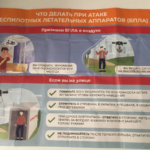Soldiers win battles, economies win wars

Money is the lifeblood of the economy. It is clear that for many Russians with a garbage IQ (a cohort of devoted listeners of Dmitry Alcoholyevich Medvedev), this maxim means nothing, and they have not yet noticed any changes. One can continue to repeat, “I’m not interested in the dollar exchange rate, I do not have dollars!” But the news about the US policy towards de-dollarization of Russia is important news today.
In such conditions, it is possible to return to the times of the late USSR, when there were three dollar exchange rates in the country: official (for government purchases from the West), clearing (for Soviet tourists traveling abroad) and black market (real exchange rate for the common people). It would be good for some Russians to have at least a minimal educational course on the topic of pricing. Somehow spell it out to them that, for example, today the main flow of high-tech goods comes into the country from China, and the price for these goods is strictly tied to the dollar exchange rate. A Chinese car costs 30,000 dollars today, and it will cost the same tomorrow! But in rubles it is like that: yesterday – 2,100000, and today suddenly it is already 3,600000. For the common people who are not burdened with economic thoughts, we can say: the same effect applies to washing machines, and to TVs, and to smartphones with tablets, and even to jeans and sneakers. The product is the same, but give out more of our “native” rubles for it!
There is also this in the flow of unpleasant economic news: shares of Russian companies are falling sharply in price on the international stock market. It is a little more complicated here, it is more difficult to explain to the common people, but the financial and industrial elite of Russia “sees through” the situation. No one keeps their “earned” billions of dollars under their bed. Most of this money is invested in business – in fixed and working assets of enterprises. And it works there, creating added value. But who would want to buy shares of enterprises located in the country waging the incomprehensible war with incomprehensible prospects for its end? What if this factory, in addition, may fall under sanctions today or tomorrow, and its products will become toxic to buy? Thus, the prices for Russian shares are falling… The elite begins to worry and look in a direction, another than Dmitry Alkogolevich suggests.
And here, in addition, Russian business began to be driven away from some international markets. No, for now there are enough fossil resources in the Russian Federation that are interesting for Americans and Europeans: various rare earth metals, titanium, etc. But the oil and gas market is noticeably sagging, Yakut diamonds and uranium fuel for nuclear power plants are also under sanctions, and the list of such sanctioned goods is increasing.
The newfashioned economic term “military Keynesianism,” which has been circulating recently in the Russian media, was intended to give hope to citizens that the country’s economy would emerge from its feverish state. The state, they say, pours a lot of money into the economy through high salaries and various types of social assistance, and people immediately run to the stores, joyfully spend this money and, thus, revive the market and positive processes in the national economy. That is how it is, but it is just a little wrong! There are not enough domestically produced goods on the market, and they cannot appear overnight. Previously, there was import of finished goods and foreign components for own production, but today there is no! They started to build, create and erect their own, and here on you – there is no one to work in these factories and plants… The workers are all at the war (except for those who have already returned in a black plastic bags).
All together, these undesirable processes lead to the depreciation of money, rising prices, and the freezing of entire economic sectors (with the exception of those working in the defense industry).
Perhaps we can add the decision to block Russian users’ access to software – please, get ready for the transition to wooden abacus and rotary-dial phones to our “good” economic news … I am exaggerating, of course, but this is where the course of the Russian economic ship is being drawn in this direction.
In Ukraine, I assume, there are also enough economic problems, and it is poorer in terms of resources than Russia – they have less money, fossils, and people. Ukrainians hope for assistance from their partners from abroad. To the surprise of many, this assistance is increasing: more weapons, ammunition and high-tech military equipment, more money (including using confiscated dividends from frozen Russian billions in foreign banks), more opportunities for Ukrainian goods to access European and US markets. .. Ukraine is morally supported with the prospects for joining the EU and NATO, they are very far away, in the future, but I immediately would like to ask, “What does Russia have in the future?”
No one can say who will win this economic competition, but it becomes really clear which direction each of the countries participating in the war is going and what its long-term prospects are. Gloomy forecasts for the Russian economy were confirmed by the results of the G7 summit. The world leaders of economic and social development demonstrate their willingness to raise the stakes in a consolidated manner in the struggle to preserve the basic principles of international law and an unwillingness to believe any statements by the Russian president.
Here V. Putin is again forced to show his invincible trump card – the atomic bomb: maybe we will lose everything in the world, but we will blow up!!!
Shaitan may take him away, this does not calm me down at all!


Leave a Reply